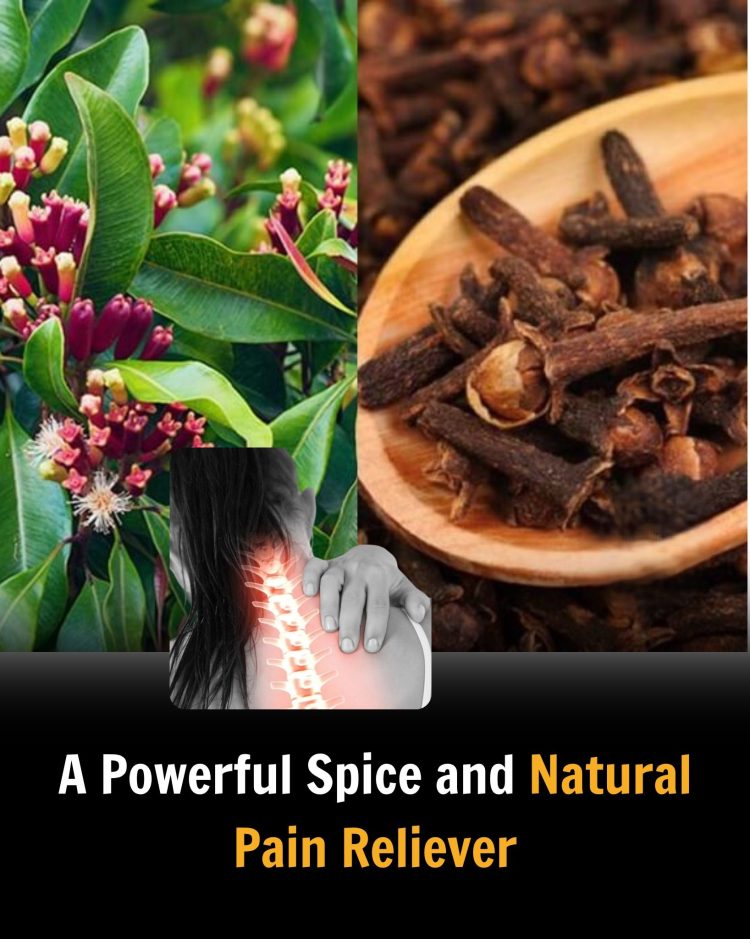Traditional Remedies Using Clove
Here are several tried-and-true remedies with clove:
1. For Sprains and Joint Dislocations:
Blend clove with ginger, cinnamon, and various medicinal herbs, heat the mixture, wrap in cloth, and apply as a compress.
2. For Nasal Congestion and Headaches:
Mix clove oil with camphor, peppermint, and cinnamon. Use as a chest rub or apply to temples.
3. For Upper Respiratory Infections:
Combine clove oil with eucalyptus oil, tangerine peel, menthol, and citric acid. Use in steam inhalation or as a mouth rinse.
4. For Cold-Stomach Ulcers:
Grind clove with corydalis, myrrh, and angelica. Take 3–6g with warm water, 2–3 times daily. Avoid during active bleeding.
5. For Digestive Issues (Nausea, Diarrhea):
Mix clove, cardamom, and atractylodes. Take 2–4g with warm water, 2–3 times daily.
6. For Rheumatic Pain and Cold Limbs:
Soak clove and camphor in alcohol for 7 days. Massage affected areas once or twice daily.
7. For Bad Breath:
Crush a single clove bud and chew or hold in the mouth.
8. For Morning Vomiting:
Mix clove powder with sugarcane juice and ginger juice to form small herbal pills. Suck and swallow slowly.
9. For Persistent Vomiting or Hiccups:
Boil clove in white wine until reduced. Drink while warm.
10. For Boils or Abscesses:
Apply clove powder directly to the wound, cover with a herbal plaster.
11. For Chronic Chest Pain:
Grind equal parts clove and cinnamon. Take 1g with warm rice wine before meals.
12. For Children’s Diarrhea:
Combine clove and cinnamon, grind into powder, mix with water into a paste, and apply to the child’s navel.
13. For Toothache:
Boil clove with magnolia bark and mint. Use the warm liquid to rinse and gargle.
14. For Indigestion and Vomiting:
Boil clove with ginseng, ginger, and hawthorn. Adjust ratios depending on cold or heat symptoms.
15. For Mouth Ulcers or Infections:
Mix clove with pineapple leaf paste and apply to affected area.
16. For Eczema or Skin Sores:
Soak clove in alcohol for 48 hours. Use the liquid to clean affected skin 3 times daily.
17. For Nipple Sores:
Grind clove with sesame or tamanu oil. Apply directly to the sore area 2–3 times daily.
Precautions When Using Clove
While clove offers many health benefits, use it responsibly:
Avoid overuse: High doses may irritate skin or affect the nervous system.
Check for allergies: Test a small amount before applying or consuming.
Ensure quality: Use well-preserved, mold-free clove for best results.
Conclusion
Clove is not just a flavorful spice—it’s a powerful natural remedy with pain-relieving, anti-inflammatory, and antimicrobial properties. When used correctly, it can be a valuable addition to your wellness routine. Incorporate it thoughtfully and share this knowledge to help others enjoy its benefits too.
Let clove work its magic—for your kitchen, and your health.
